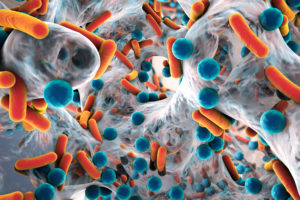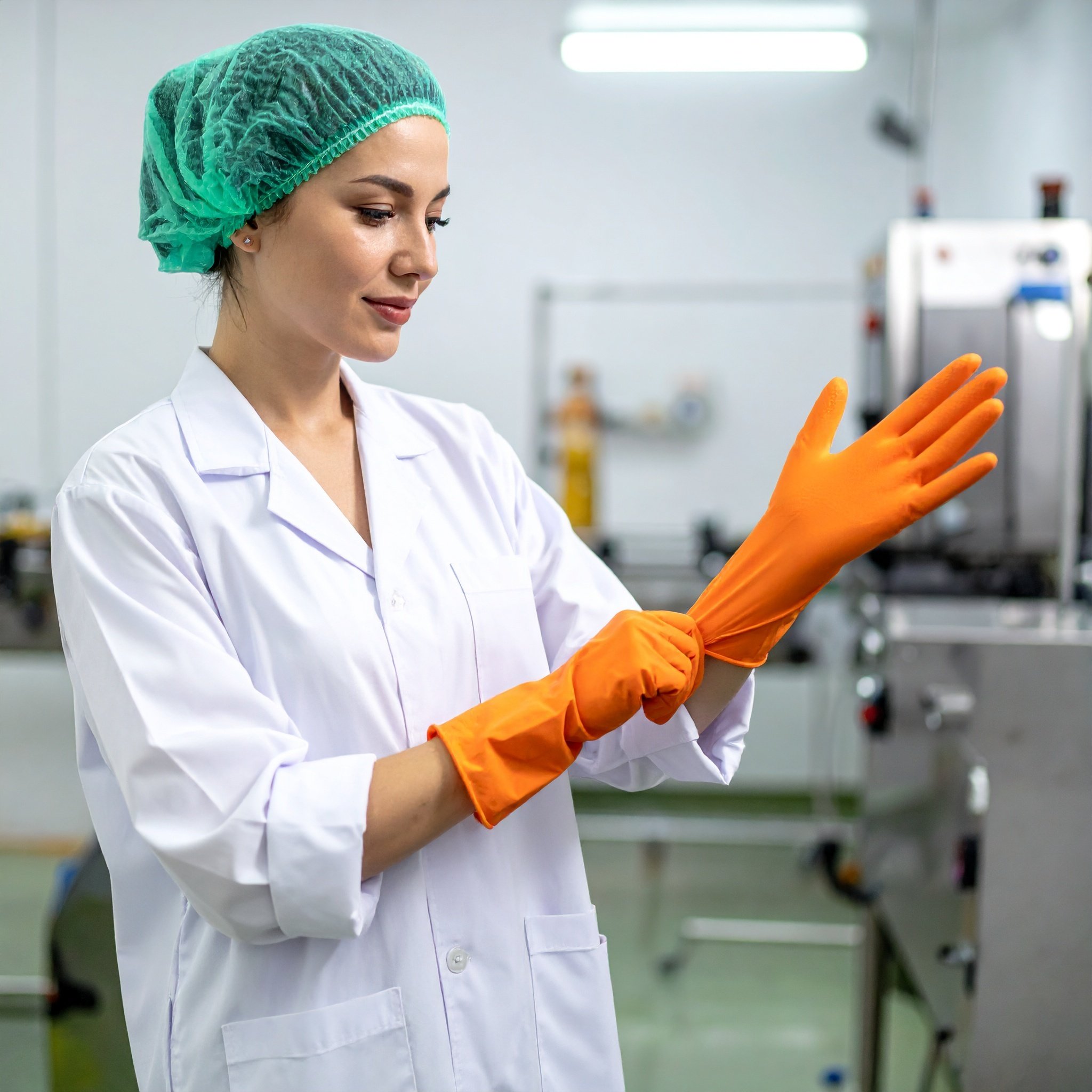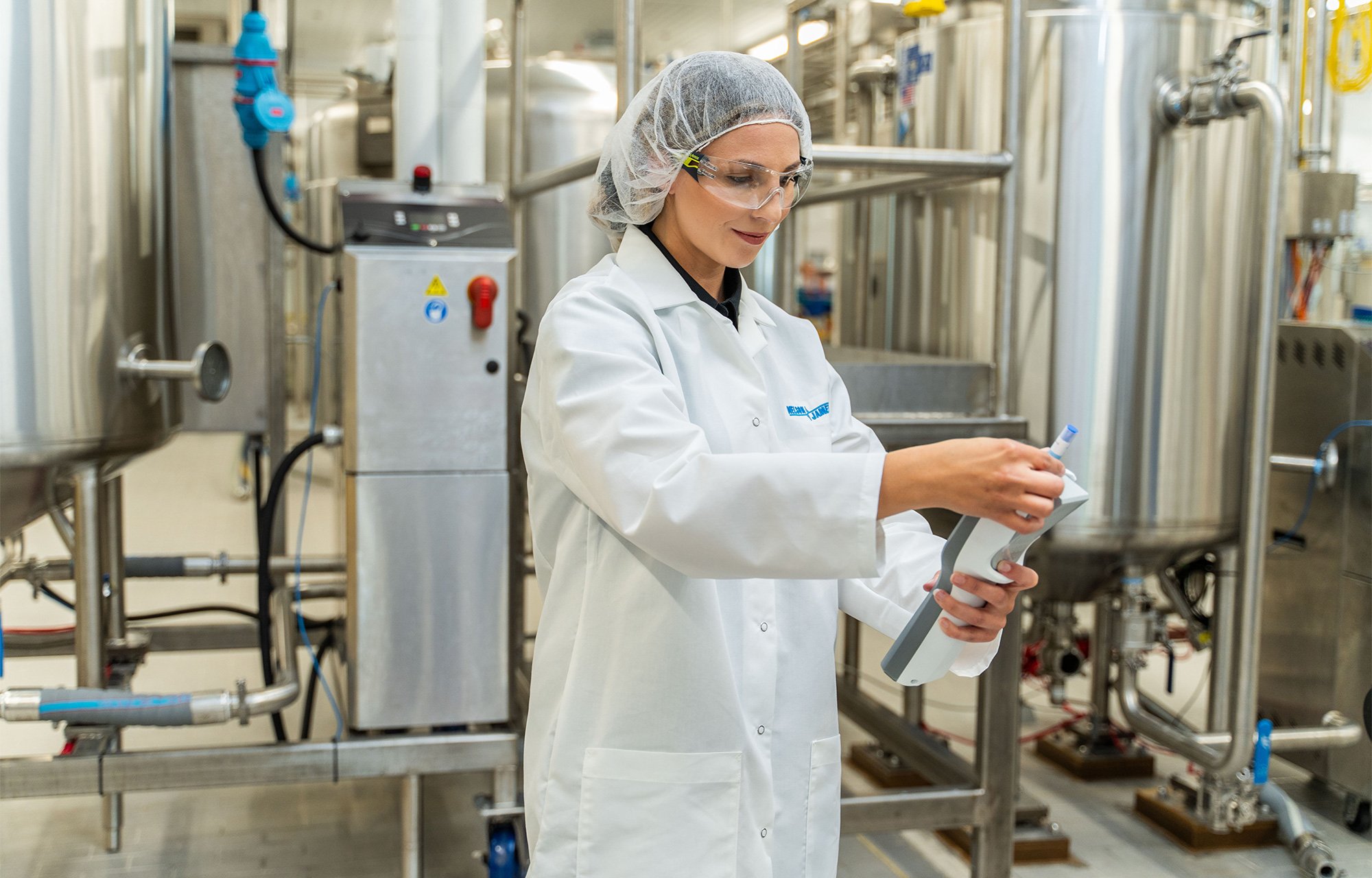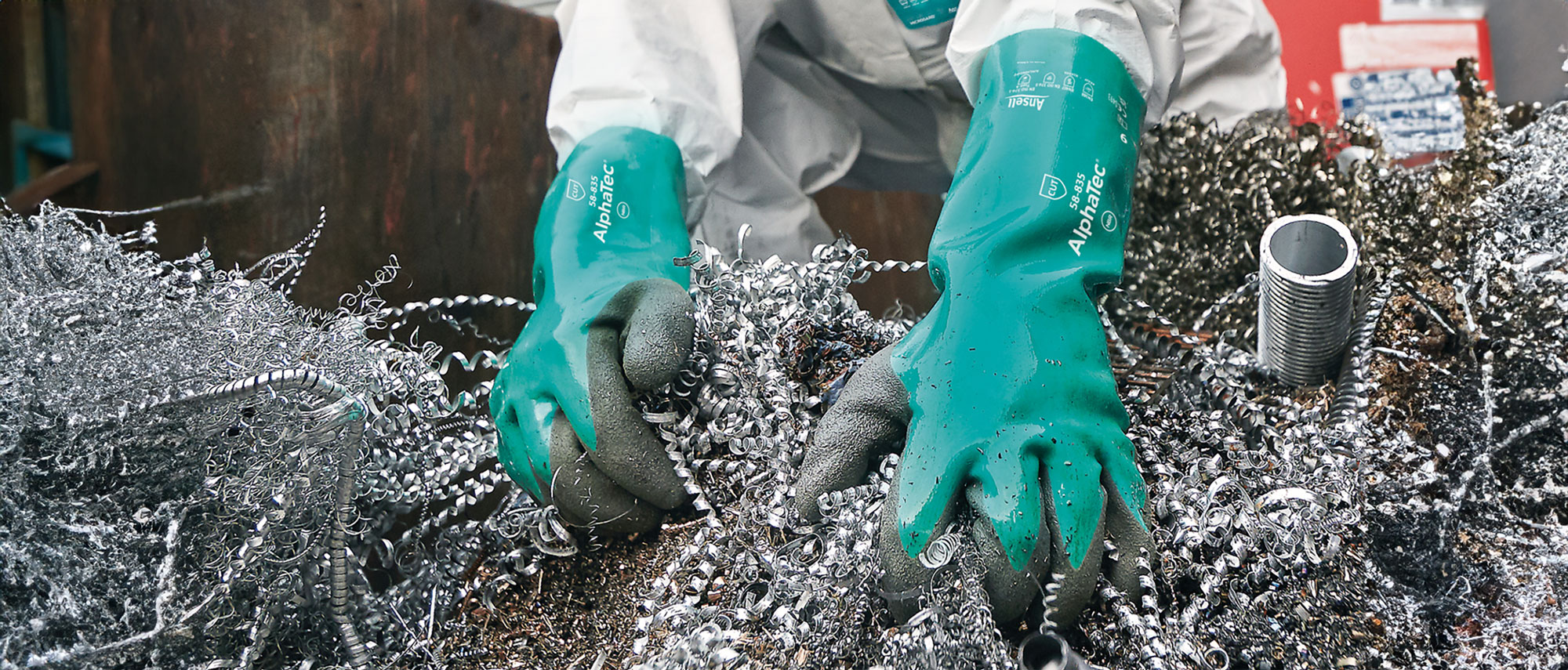 Biofilms are hearty amalgams of microbiological activity that provide protection for microorganisms, and can form on a variety of surfaces in food processing environments, including stainless steel. A supercell of harborage, "Biofilms are complex microbial ecosystems formed by one or more species immersed in an extracellular matrix of different compositions depending on the type of food manufacturing environment and the colonizing species" (Geaile, et al). The "matrix" formed creates a powerful source of protection and fuel.
Biofilms are hearty amalgams of microbiological activity that provide protection for microorganisms, and can form on a variety of surfaces in food processing environments, including stainless steel. A supercell of harborage, "Biofilms are complex microbial ecosystems formed by one or more species immersed in an extracellular matrix of different compositions depending on the type of food manufacturing environment and the colonizing species" (Geaile, et al). The "matrix" formed creates a powerful source of protection and fuel.
Though biofilms are capable of creating a lot of hassle when it comes to cleaning, spoilage concerns, etc., Gaile, et al, in "Biofilms in the Food Industry: Health Aspects and Control Methods" note: "Of particular importance to the food industry is that some biofilm-forming species in food factory environments are human pathogens." With biofilms aiding and abetting pathogens, the cost of not waging an effective sanitation onslaught, may create food safety issues of serious proportions. This is even further complicated by the fact that, "Mixed biofilms show higher resistance to disinfectants such as quaternary ammonium compounds and other biocides" (Gealie, et al.). This means traditional cleaning protocols may not be enough to counter the threat biofilms pose to public health.
Nelson-Jameson has an array of solutions to help you combat biofilms in your food and beverage processing facility:


February 11, 2026
There is a critical link between worker safety and food safety, and nowhere is this more apparent than w...

February 3, 2026
Ensuring the safety and quality of dairy products requires a robust framework combining rigorous testing...

January 12, 2026
Gloves can force a choice between comfort and protection. But compliance, efficiency in usage, and worke...